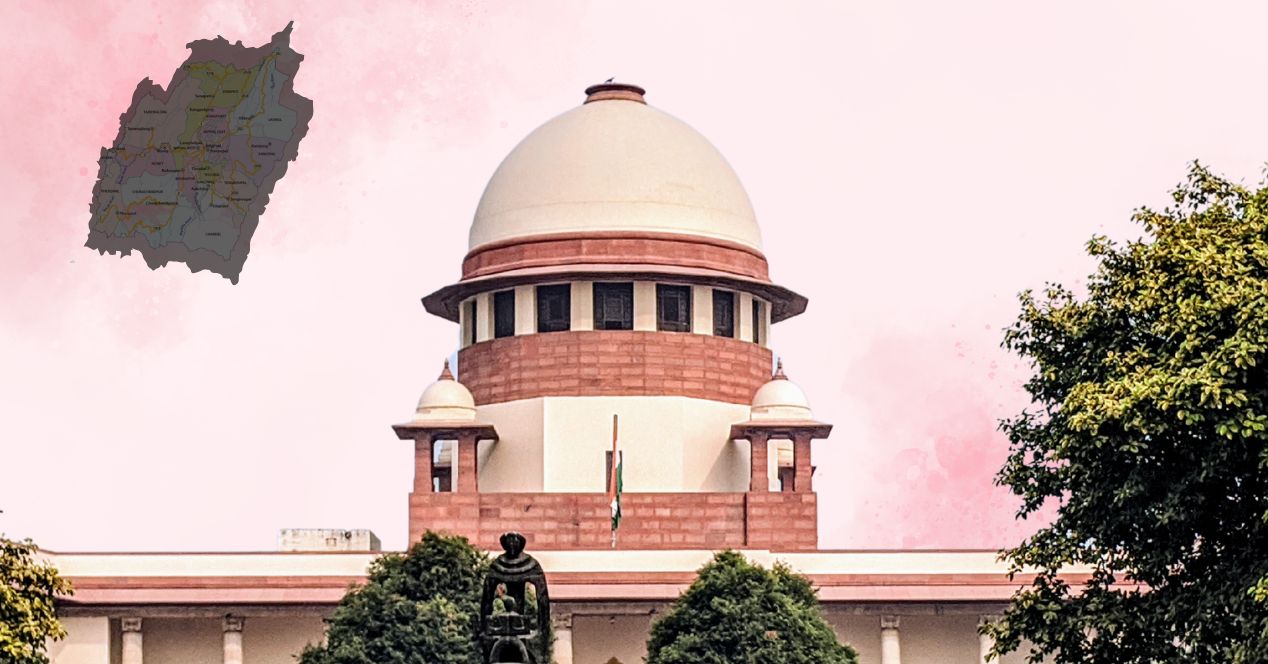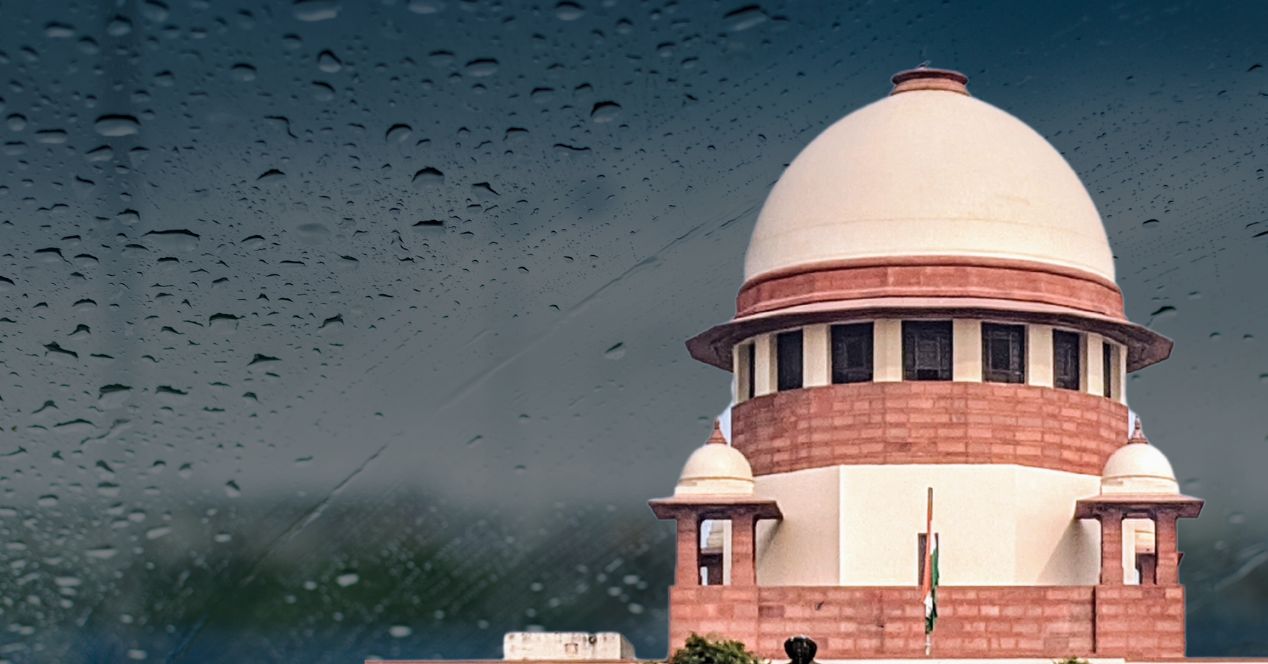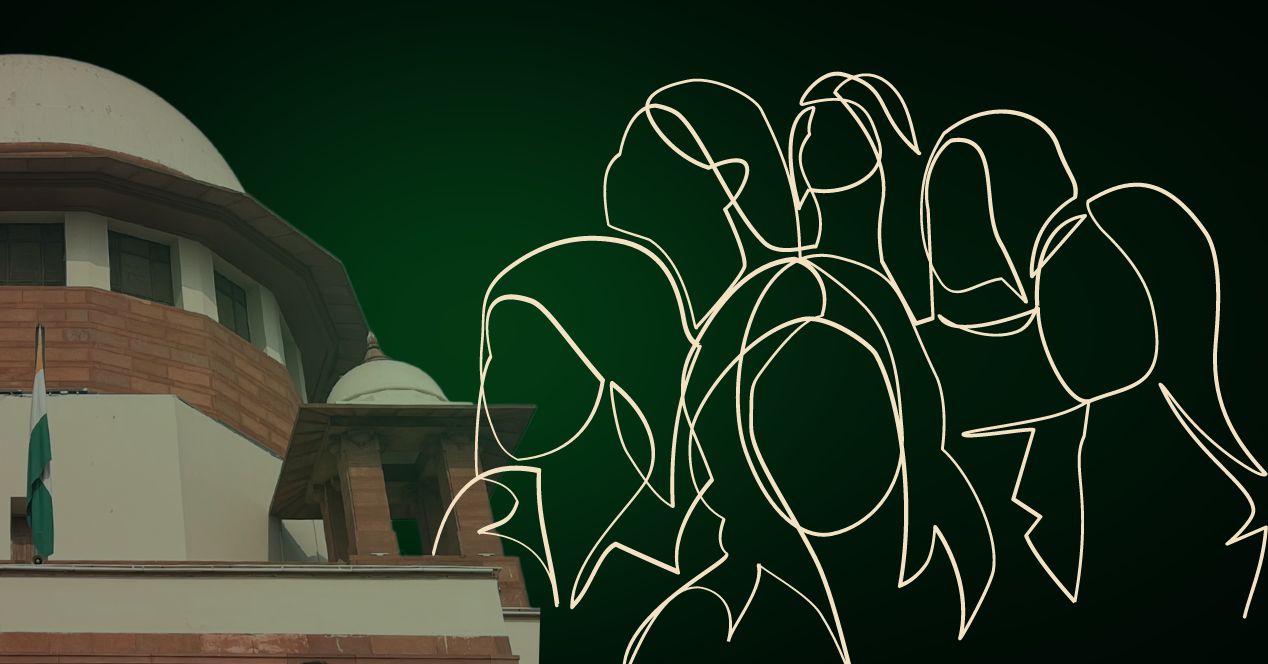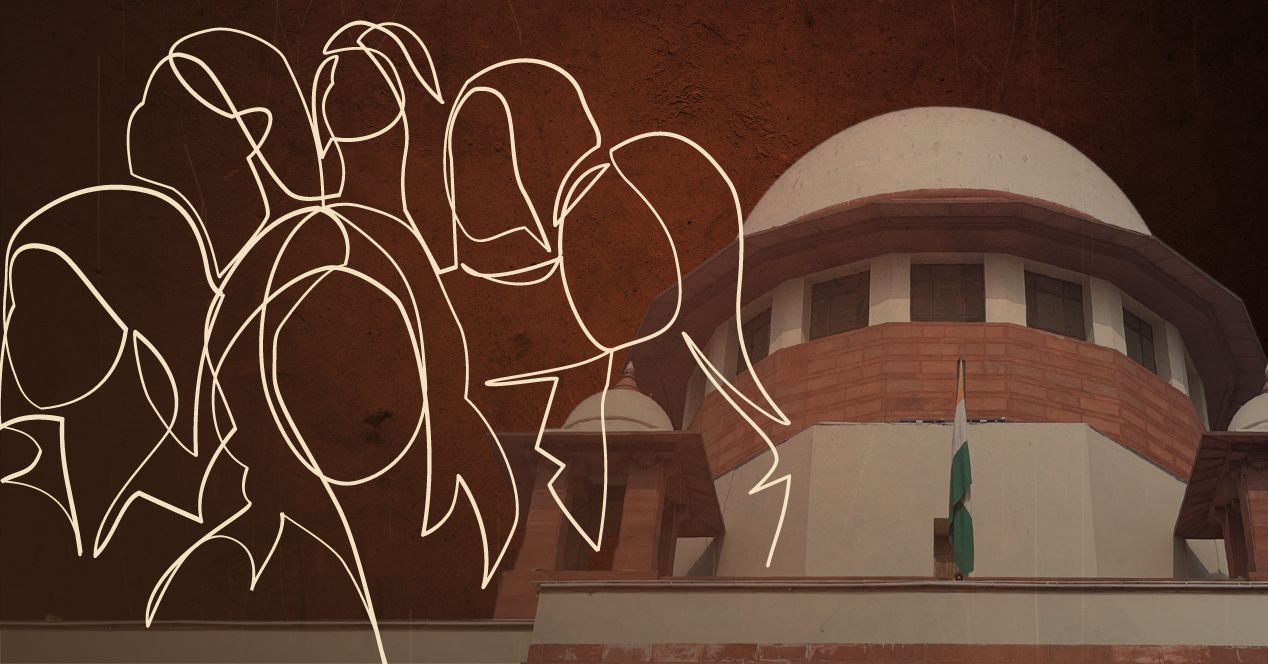Analysis
What is West Bengal’s Original Suit challenging CBI’s jurisdiction about?
An explainer on the top Court’s decision to uphold the maintainability of the suit, and its consequences for law, order and federalism
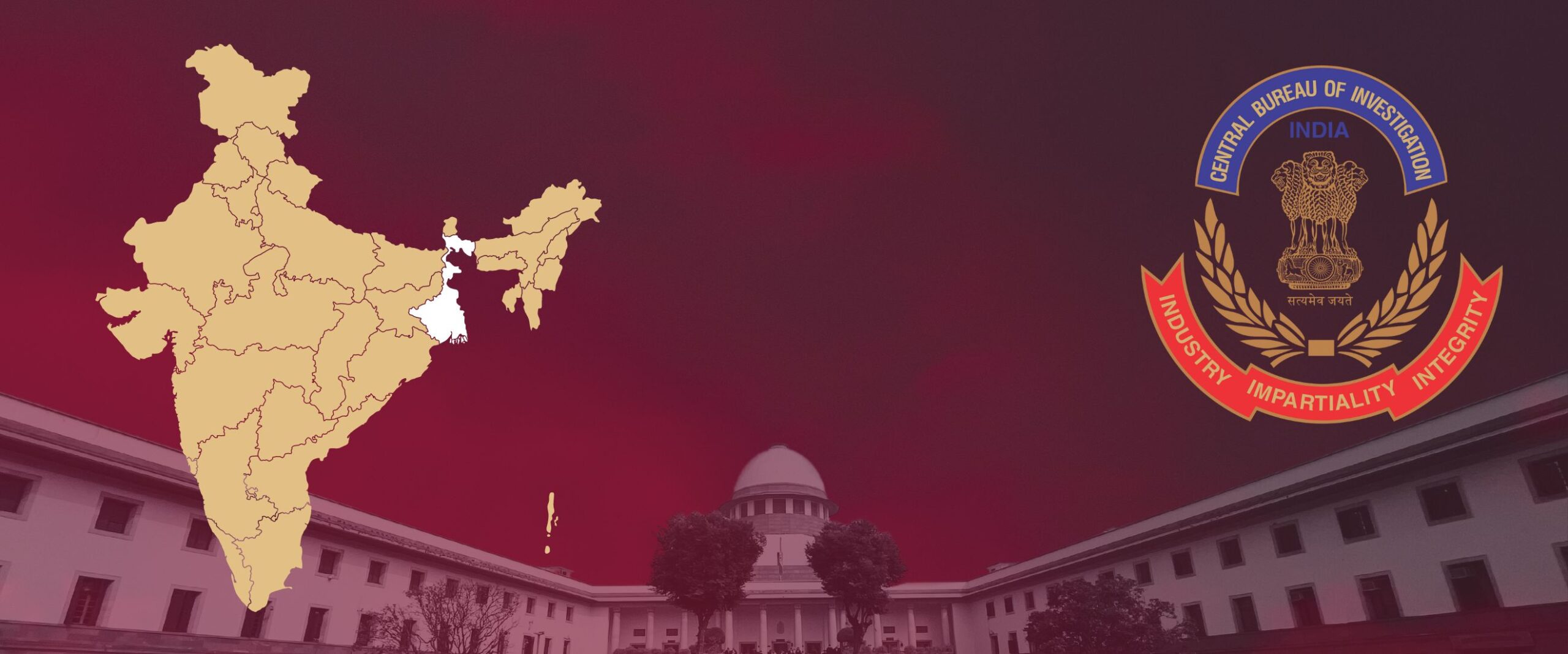
On 16 November 2018, the West Bengal government had withdrawn the “general consent” to investigations by the Central Bureau of Investigation (CBI), an essential requirement for the CBI to exercise its jurisdiction and carry out investigations in any state, under Section 6 of the Delhi Special Police Establishment Act, 1946 (DSPE Act). In 2021 West Bengal had also filed an “original suit” at the Supreme Court arguing that the Union government had unlawfully and unconstitutionally deployed the CBI, despite the state having withdrawn consent.
On 10 July 2024, a Division Bench of Justices B.R. Gavai and Sandeep Mehta ruled that the original suit filed by the West Bengal government challenging the jurisdiction of the Central Bureau of Investigation within the state was maintainable. With the maintainability order favouring the West Bengal government’s position, a significant hearing on federalism is soon to ensue on whether the CBI can undertake investigations in states whose governments have withdrawn “general consent.”.
As of December 2023, there were as many as ten states that had withdrawn general consent, namely- Punjab, Jharkhand, Kerala, Rajasthan, Chhattisgarh, West Bengal, Mizoram, Telangana, Meghalaya, and Tamil Nadu. Many of these states have alleged that CBI investigations have unfairly targeted opposition leaders.
Rarely do preliminary hearings make as many headlines as this case did. We give a quick insight into what has happened in this case so far, the stakes involved, and the big questions before the Court.
What does the Original Suit by West Bengal allege?
An Original Suit is filed under Article 131 of the Constitution, which confers ‘original jurisdiction’ upon the top Court. With this, the top Court has exclusive jurisdiction over disputes between the Union and one or more states, as well as between different state governments.
Section 6 of the DSPE Act explains that, unless it is a Union Territory or a “railway area”, no “member of the Delhi Special Police Establishment” can “exercise powers and jurisdiction in any area…without the consent of the Government of that State.” Commonly, states give “general consent” to facilitate a simple process of CBI investigation against central government employees accused of crimes such as corruption.
West Bengal’s original suit against the Union of India argues that the Union had engaged in “constitutional overreach” and violated principles of federalism by unilaterally deploying the CBI to investigate matters within the state. The problem, it claimed, was that West Bengal had withdrawn its “general consent” in November 2018. Despite this, the CBI continues to exercise its powers within the state.
Why is such a general consent necessary?
Entry 80 of the Union list gives Parliament the power to extend the “powers and jurisdiction of members of a police force belonging to any State or any area outside that State.” But it stipulates that consent of the state government is a must.
Further, Entries 1 and 2 of the State List vests exclusive jurisdiction on “public order” and “police” to state governments.
The West Bengal government has argued that when Entry 80 of the Union list, Entries 1 and 2 of the State list and Section 6 of the DSPE Act are read together, it becomes clear that without the state government’s consent, the CBI has no jurisdiction in West Bengal.
Why was the maintainability of the suit challenged?
The Union raised various ‘preliminary objections’ to the suit questioning whether such a petition could be filed and heard at the Supreme Court in the first place.
First, it argued that the Union of India, through the Department of Personnel and Training (‘DoPT’) is not the correct respondent for this case at all, and that it should be the CBI instead. The Solicitor General Tushar Menta went to lengths to argue that the CBI is not controlled by the Union. On 9 November 2023, Mehta had argued that the DoPT does not control the “registration, investigation or prosecution of cases by CBI.”
Mehta also referred to the top Court’s decision in Vineet Narain v Union of India (1997), which had placed the CBI under the supervision of the Central Vigilance Commission (CVC). He pointed out that the CVC only has administrative supervision and does not supervise the manner of investigation.
Second, the Union argued that even if CBI were to be the correct respondent party and not the Union, the original suit would not be maintainable. The CBI was a “child of a statute”, established in similar legal frameworks as the Life Insurance Corporation or the Reserve Bank of India. As Article 131 specifically stipulates that original suits may only be filed when the dispute involves a ‘state,’ the present original suit against a statutory body was not valid at all.
Mehta had also submitted that parallel challenges by West Bengal in individual cases contesting the CBI’s jurisdiction were already pending. In such a situation, an original suit raising the same issue could not have been filed. Senior Advocate Kapil Sibal for West Bengal had quickly clarified that while those challenges were particular cases, the original suit raised the specific issue of ‘jurisdiction.’
What did the Supreme Court decide?
On 9 May 2024, Justice Sandeep Mehta pressed the Union to answer: “Who would be the authority to authorise the CBI to proceed to another State for investigation?” Justice Mehta referred to Section 5(1) of the DSPE Act which gives the Union the authority to the “pass orders extending to any area (including Railway areas) in a State, not being a Union Territory, the powers and jurisdiction of members of the Delhi Special Police Establishment (CBI) or the investigation of any offences or classes of offences…”
The Solicitor General first contended that Section 5(1) conferred the power to extend the scope of the CBI’s jurisdiction to the CBI Director, but Justice Mehta remained unconvinced, and asked whether that meant that the “Director and the Central government are the same.” When Justice Mehta further pressed which department is authorised under Section 5(1), the Solicitor General hesitantly accepted that it was the Department of Personnel and Training—a Union Government agency.
In its final judgement on 10 July, upholding the maintainability of the suit, the Court noted that the Union was “vitally concerned” with the CBI. It referred to various provisions of the DSPE Act. Section 2(1) entitles the Union to constitute a special police force called the DSPE. Section 3 states that the DSPE can only investigate offences or classes of offences specified by the Union. Section 4 vests superintendence of the DSPE in all matters except under the Prevention of Corruption Act, 1988, upon the Union. Section 5 entitles the Union to extend DSPE’s jurisdiction to “any area.”
Justice Gavai even noted briefly that Section 6 states that DSPE cannot exercise powers and jurisdiction in a state without the state government’s consent. This is at the core of contention in this case. He clarified, however, that these observations were only for the purposes of the preliminary hearing and hold no weight for the substantive hearings.
What is at stake?
The CBI has been investigating high profile cases in West Bengal. These include the investigations in the R.G. Kar Medical College rape and murder case, and the 2016 teachers recruitment scam case, involving the unlawful appointment of over 25,000 teaching and non-teaching staff. In May 2023, the CBI had summoned Trinamool Congress MP Abhishek Banerjee in this case.
Sibal has also suggested during the hearing that allowing the CBI to keep its business running as usual even after the withdrawal of consent by West Bengal will further embolden the Enforcement Directorate, another federal investigation agency, to increase its crackdown against opposition leaders in the state.
As the Court decides the limits of CBI’s jurisdiction in state governments averse to its presence, important consequences will follow for states such as Tamil Nadu, which became the latest to withdraw “general consent.” The overall implications on law and order supervision within India’s federal structure will be significant.
The matter is likely to be heard from September 2024.

